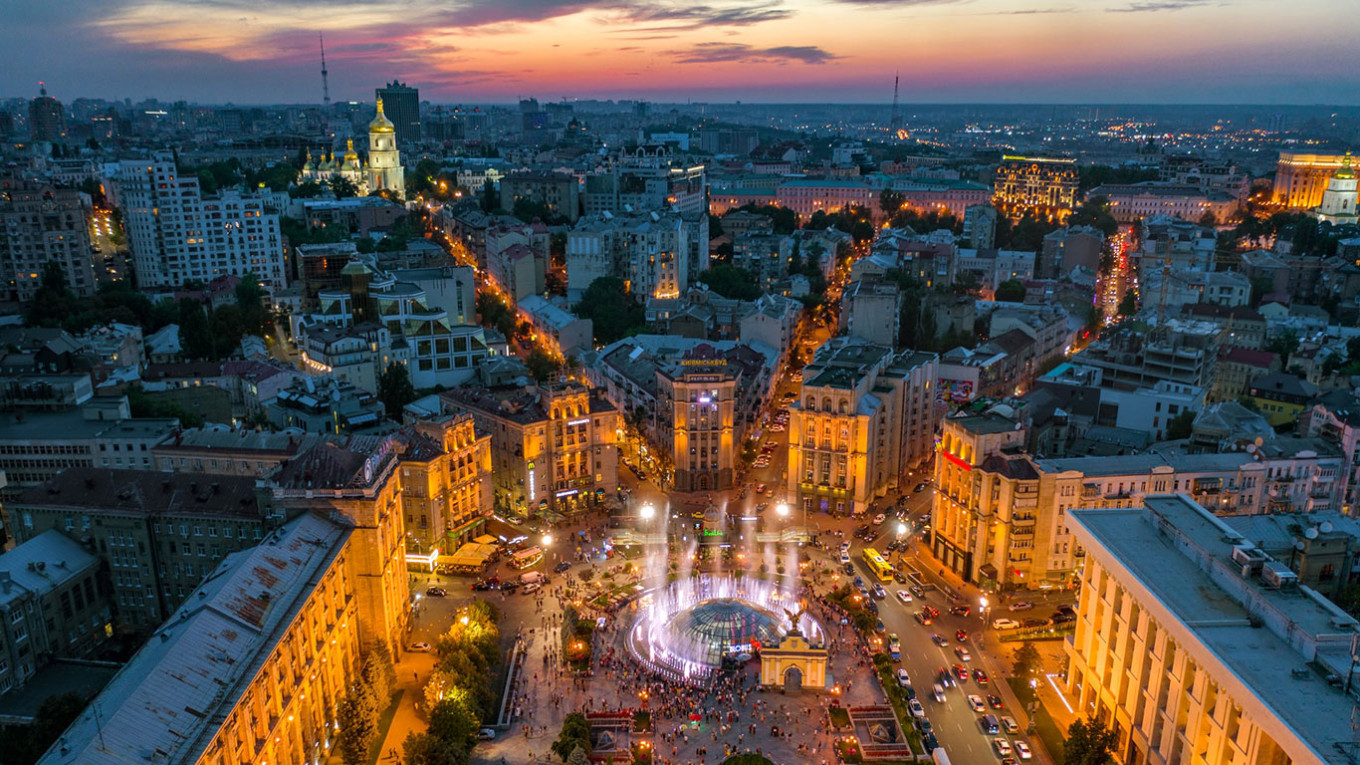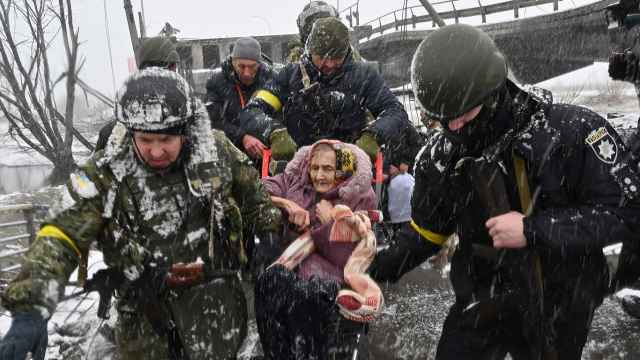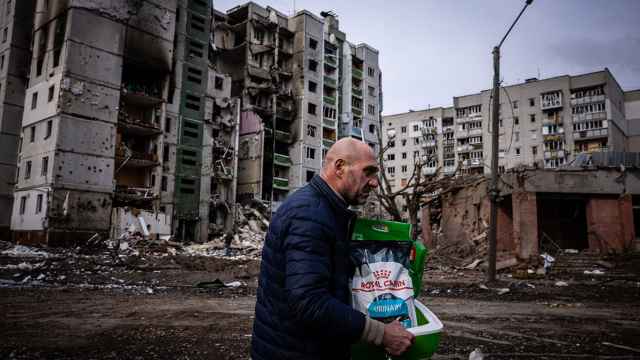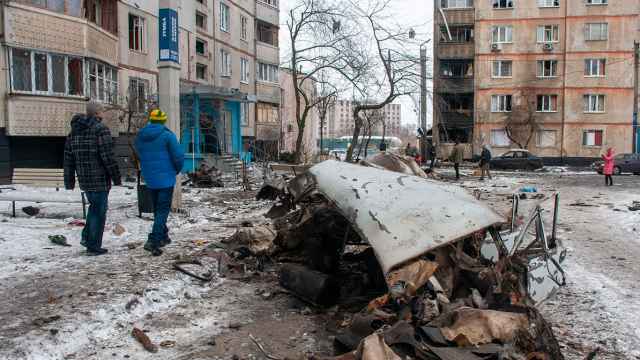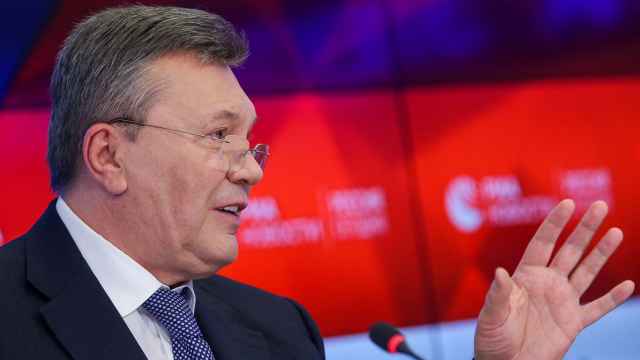Russia has massed tens of thousands of troops around Ukraine's borders, with the U.S. warning that Moscow could attack its neighbor at any moment and Western leaders scrambling to prevent it.
Here are five facts about the country that in the last decade has been shaken by uprisings, war, and loss of territory.
Linked past
Ukraine's history is closely intertwined with that of its giant eastern neighbor Russia, and the word "Ukraine" translates literally to "on the edge."
Both countries trace their origins to the ancient state of Kievan Rus, which once stretched from the Black Sea to the Baltic Sea.
Much of Ukraine was part of the Tsarist Russian Empire, though western regions belonged at different times to neighbors, including the Austro-Hungarian Empire.
It later became part of the U.S.S.R. and in the early decades of Soviet rule suffered from a devastating famine known as the Holodomor caused by Joseph Stalin's agricultural policies.
Tensions between Kyiv and Moscow have flared since the break-up of the Soviet Union in 1991.
After a pro-Western popular uprising led to the ouster of Russian-backed president Viktor Yanukovych in 2014, Moscow annexed the Crimean peninsula and supported separatists in the east of Ukraine.
The conflict has so far cost more than 14,000 lives.
Economic trouble
With the start of the 2014 crisis, the Ukrainian economy went into freefall. That year, GDP dropped by more than six percent, and the following year it fell almost 10 percent with inflation soaring to 40 percent.
The economy has since shown signs of recovery but the country of around 40 million people remains one of the poorest in Europe. An average monthly salary is around $567.
Ukraine relies heavily on transit fees for Russian gas to Europe and Kyiv has voiced concern over the economic impact of Russia's new Nord Stream 2 pipeline to Germany, which bypasses Ukraine.
In 2006 and 2009 disputes, Moscow cut supplies to Ukraine during the winter, sparking knock-on shortages in Europe.
Corruption
Corruption is an endemic problem in Ukraine.
In 2019, former comedian Volodymyr Zelensky was elected president after a campaign promising to put an end to corruption.
Zelensky previously played a fictional president in a TV show called "Servant of the People", which is also the name of his party.
Transparency International puts Ukraine at 122 out of 180 countries in a ranking of public perception of corruption -- better than its 2014 rating of 142, but well below its EU neighbors.
There is public frustration at what is seen as an out-of-touch, corrupt political elite – which explained the meteoric rise of Zelensky and his party.
Anti-corruption campaigners regularly suffer physical attacks. Activists say they have recorded around 100 such attacks over the past four years.
Chernobyl
The world's worst nuclear accident took place in Ukraine on April 26, 1986, at the Chernobyl nuclear power station.
Thirty people were killed in an explosion and many hundreds died of related illnesses, though the exact figure remains disputed. Soviet authorities initially tried to cover up and then play down the disaster.
Eventually, 350,000 people were evacuated from within a 30-kilometer radius around the plant, an exclusion zone that remains uninhabited, apart from some several dozen elderly residents who returned despite an official ban.
Authorities now say it will only be safe for humans to live there again in 24,000 years.
In recent years the site has become a tourist attraction, with the success of HBO's mini-series "Chernobyl" boosting the tourism industry even more.
Borscht and Chicken Kiev
While some in the West think of borscht as synonymous with Russian cuisine, Ukraine claims the beetroot-based soup with cabbage as part of its national heritage dating back to the 14th century.
A number of other dishes are contested by Russia and Ukraine, including chicken Kyiv. Some versions of its history attribute the invention of the dish to a Russian chef.
A Message from The Moscow Times:
Dear readers,
We are facing unprecedented challenges. Russia's Prosecutor General's Office has designated The Moscow Times as an "undesirable" organization, criminalizing our work and putting our staff at risk of prosecution. This follows our earlier unjust labeling as a "foreign agent."
These actions are direct attempts to silence independent journalism in Russia. The authorities claim our work "discredits the decisions of the Russian leadership." We see things differently: we strive to provide accurate, unbiased reporting on Russia.
We, the journalists of The Moscow Times, refuse to be silenced. But to continue our work, we need your help.
Your support, no matter how small, makes a world of difference. If you can, please support us monthly starting from just $2. It's quick to set up, and every contribution makes a significant impact.
By supporting The Moscow Times, you're defending open, independent journalism in the face of repression. Thank you for standing with us.
Remind me later.


